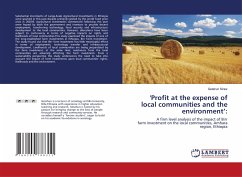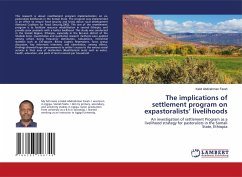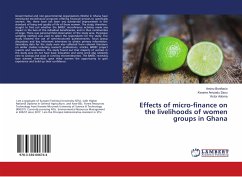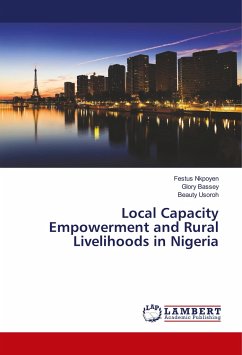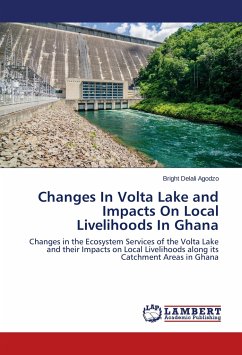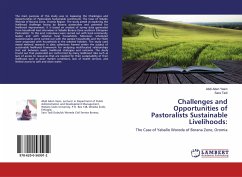Substantial increments of Large-Scale Agricultural Investments in Ethiopia were sparked in this past decade primarily ignited by the world food price crisis in 2007/8. Agricultural investments commenced following this year were hoped by both the government and investors to provide decent employment, transferring technology, food security and infrastructure development to the local communities. However, allocations have been subject to controversy in terms of negative impacts on rights and livelihoods of local communities.This study examined the impacts of one of the long-established farm investments in Ethiopia, Birr Farm Investment. The study found out that Birr farm investment has little meaningful effect in terms of employment, technology transfer and infrastructural development. Livelihoods of local communities are being jeopardized by the farm investment, at the same time; resistances from the local communities are adversely affecting the farm investment. From a sustainability perspective this study underscores the need to take into account the impact of farm investments upon local communities' rights, livelihoods and the environment.

